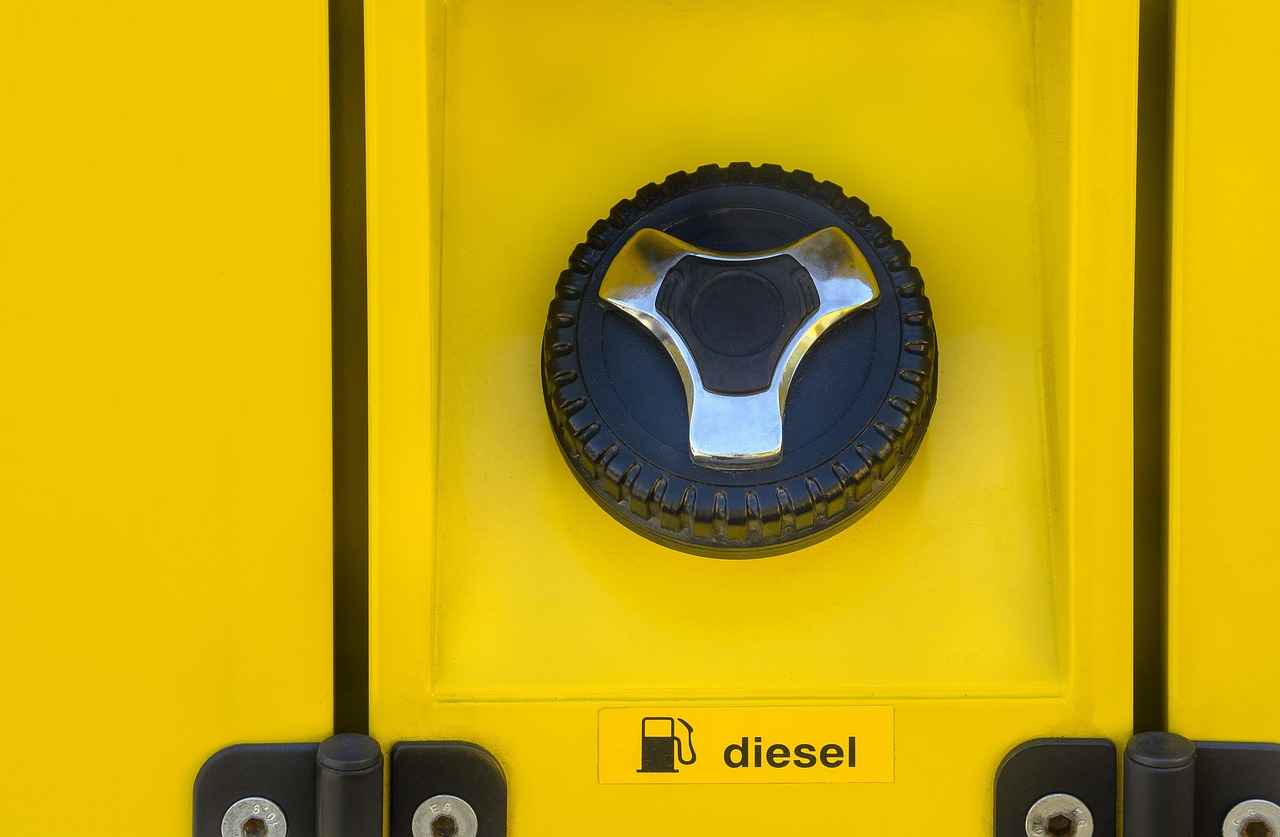The Honda Accord is one of the most popular midsize sedans in the automotive market, known for its reliability, comfort, and fuel efficiency. A key aspect of its performance is its fuel capacity, which varies across different model years. In this article, we will delve into the fuel capacity of various Honda Accord models, examining their fuel efficiency, tank sizes, and practical implications for drivers.
The fuel capacity of a Honda Accord typically ranges from 14 to 17 gallons, depending on the model year and trim level. For instance, newer models may feature a slightly larger tank to accommodate advanced engine technologies and improve driving range. Understanding the fuel capacity is essential for drivers as it directly influences the driving range and overall efficiency of the vehicle.
Fuel capacity plays a crucial role in determining how far a Honda Accord can travel on a single tank. A larger tank allows for a longer driving range, which can be particularly beneficial for long-distance travelers or those who frequently drive in areas with limited refueling options.
- Engine Type: Different engine configurations, such as hybrid versus traditional gasoline engines, can significantly affect fuel consumption and efficiency.
- Driving Conditions: Urban driving often results in higher fuel consumption compared to highway driving, which can alter the effective range.
- Maintenance: Regular vehicle maintenance, including oil changes and tire pressure checks, can optimize fuel efficiency and extend driving range.
Each Honda Accord model year may have slight variations in fuel tank size. For example, the 2021 Honda Accord features a fuel tank capacity of approximately 14.8 gallons, while older models may have slightly different capacities. Understanding these differences can help potential buyers make informed decisions.
Older Honda Accord models, such as those from the early 2000s, may have smaller fuel tanks compared to the latest versions, reflecting the evolution of automotive design and technology.
The fuel capacity of hybrid Honda Accords differs from traditional gasoline models. For instance, the hybrid variants often have a smaller fuel tank due to their enhanced fuel efficiency, which allows them to travel further on less fuel.
Fuel efficiency can be calculated by dividing the total miles driven by the gallons consumed. This calculation helps drivers understand their vehicle’s performance and make necessary adjustments to their driving habits.
Many modern Honda Accords come equipped with onboard computer systems that provide real-time fuel efficiency data, making calculations easier for drivers. These systems can help track average fuel consumption over time.
Drivers can also manually calculate fuel efficiency by tracking mileage and fuel purchases. This method provides valuable insights into driving habits and can highlight areas for improvement.
Understanding common fuel-related issues can help Honda Accord owners maintain their vehicles and avoid costly repairs. Regular checks can prevent problems that may affect fuel efficiency.
Fuel pump issues can lead to poor performance and reduced fuel efficiency. Recognizing symptoms early, such as difficulty starting or decreased acceleration, is crucial for timely repairs.
A clogged fuel filter can restrict fuel flow, negatively impacting engine performance and efficiency. Regular maintenance, including filter replacements, can help mitigate this issue.
The quality of fuel used can significantly affect the performance and longevity of a Honda Accord’s engine. Higher-quality fuel generally leads to better engine performance and fuel efficiency.
Using the correct octane rating, as specified by Honda, can optimize engine performance. Drivers should always refer to the owner’s manual for recommendations.
Low-quality fuel can lead to engine knocking and reduced efficiency, emphasizing the importance of using reputable fuel sources to maintain optimal performance.
Being mindful when refueling can enhance the performance and lifespan of your Honda Accord’s engine. Here are some tips to consider:
Selecting the appropriate fuel type based on your model can significantly impact the vehicle’s efficiency and performance. Always follow manufacturer guidelines.
Refueling at the right time can help prevent sediment accumulation in the tank, promoting better fuel flow and engine performance. Aim to keep the tank at least a quarter full to avoid issues.

What is the Fuel Capacity of a Honda Accord?
The Honda Accord is a popular choice among drivers for its reliability, comfort, and fuel efficiency. One of the key specifications that potential buyers often consider is the vehicle’s fuel capacity. Understanding the fuel capacity of a Honda Accord can significantly influence driving habits and overall satisfaction with the vehicle.
The fuel capacity of a Honda Accord varies by model year, typically ranging between 14 to 17 gallons. This variation is crucial as it affects not only the driving range but also the vehicle’s overall efficiency. For example, older models may have a smaller tank compared to newer ones, reflecting advancements in design and technology aimed at improving fuel economy.
Understanding fuel capacity is essential for estimating how far a Honda Accord can travel on a full tank. The driving range is calculated by multiplying the fuel capacity by the vehicle’s fuel efficiency (miles per gallon). Therefore, a larger fuel tank can potentially extend the distance you can travel before needing to refuel.
- Engine Type: Different engine configurations, such as hybrid versus gasoline, can significantly impact fuel efficiency.
- Driving Conditions: Urban driving typically consumes more fuel compared to highway driving, thus affecting the overall range.
- Maintenance: Regular maintenance, including oil changes and tire pressure checks, can optimize fuel consumption.
Each Honda Accord model year may have slight variations in fuel tank size. For instance, the 2020 Honda Accord features a fuel tank capacity of approximately 16.1 gallons, while older versions may have smaller capacities. Knowing these differences can help potential buyers make informed decisions.
As technology has evolved, newer Honda Accord models have been designed to be more fuel-efficient, often leading to changes in fuel tank sizes. Understanding these changes is crucial for buyers looking for the best balance between tank size and fuel economy.
The fuel capacity of hybrid Honda Accords, such as the 2021 Honda Accord Hybrid, differs from traditional gasoline models. While hybrids may have a slightly smaller tank, they often compensate with higher fuel efficiency, making them a popular choice for eco-conscious drivers.
Fuel efficiency can be calculated by dividing the total miles driven by the gallons consumed. This simple formula helps drivers understand their vehicle’s performance and make adjustments to their driving habits for improved efficiency.
Many modern Honda Accords come equipped with onboard computer systems that provide real-time fuel efficiency data. This feature allows drivers to monitor their fuel consumption and adjust their driving behavior accordingly.
Drivers can also manually track their mileage and fuel purchases to calculate fuel efficiency. Keeping a log of these details can provide valuable insights into driving habits and help identify areas for improvement.
Understanding common fuel-related issues can help Honda Accord owners maintain their vehicles and avoid costly repairs.
Fuel pump issues can lead to poor performance and reduced fuel efficiency. Recognizing the symptoms early, such as difficulty starting the engine or a decrease in power, can help prevent more significant problems.
A clogged fuel filter can restrict fuel flow, negatively impacting engine performance. Regularly replacing the fuel filter can ensure optimal fuel delivery and maintain engine efficiency.
The quality of fuel used can significantly affect the performance and longevity of a Honda Accord’s engine. Using high-quality fuel can enhance fuel efficiency and reduce engine knocking, leading to a smoother driving experience.
Using the correct octane rating as specified by Honda can optimize engine performance and fuel efficiency. Higher octane fuels can prevent knocking and improve overall engine health.
Low-quality fuel can lead to engine knocking and reduced efficiency. It is essential to use reputable fuel sources to ensure the longevity and performance of your Honda Accord.
Being mindful when refueling can enhance the performance and lifespan of your Honda Accord’s engine.
Selecting the appropriate fuel type based on your model can significantly impact the vehicle’s efficiency and performance. Always refer to the owner’s manual for the manufacturer’s recommendations.
Refueling at the right time can help prevent sediment accumulation in the tank, promoting better fuel flow and engine performance.

How Does Fuel Capacity Affect Driving Range?
Understanding the relationship between fuel capacity and driving range is essential for any Honda Accord owner. Fuel capacity refers to the total amount of gasoline that a vehicle’s tank can hold, which directly influences how far the car can travel before needing a refill. This understanding not only affects driving habits but also informs refueling strategies, ensuring that drivers can optimize their journeys without unexpected interruptions.
The fuel capacity of a Honda Accord typically ranges from 14 to 17 gallons, depending on the model year. This variation plays a critical role in determining the vehicle’s overall driving range. For instance, a model with a larger tank can travel further on a single fill-up compared to one with a smaller tank, assuming similar fuel efficiency. This is particularly important for long-distance travelers who rely on fewer stops for refueling.
Knowing the fuel capacity of your Honda Accord can significantly influence your driving habits. For example, drivers of models with larger tanks may feel more confident embarking on longer trips without frequent stops. Conversely, those with smaller tanks might plan their routes more carefully, ensuring that they are never too far from a gas station. This awareness can lead to more efficient driving practices, such as avoiding rapid acceleration and maintaining steady speeds to maximize fuel efficiency.
While fuel capacity provides a theoretical limit on how far a vehicle can go, several factors can influence the actual driving range:
- Engine Type: Different engines, such as gasoline versus hybrid, have varying fuel efficiencies that affect how far a vehicle can travel on a full tank.
- Driving Conditions: Urban driving often results in lower fuel efficiency due to stop-and-go traffic, while highway driving typically yields better mileage.
- Driving Style: Aggressive driving, characterized by rapid acceleration and hard braking, can significantly decrease fuel efficiency.
- Vehicle Maintenance: Regular maintenance, including oil changes and air filter replacements, can optimize engine performance and fuel consumption.
To ensure you are getting the most out of your Honda Accord’s fuel capacity, consider the following tips:
- Maintain Your Vehicle: Regular maintenance helps keep your engine running smoothly, improving fuel efficiency.
- Monitor Tire Pressure: Properly inflated tires reduce rolling resistance, enhancing fuel economy.
- Plan Your Routes: Use navigation apps to find the most efficient driving routes, minimizing unnecessary stops.
- Drive Smoothly: Adopting a smooth driving style can help conserve fuel and extend your driving range.
Understanding your vehicle’s fuel capacity can also inform your refueling strategies. It’s advisable to refuel when your tank is around one-quarter full to avoid sediment buildup and potential fuel pump issues. Additionally, keeping an eye on fuel prices can help you save money by allowing you to refuel when prices are lower.
In conclusion, grasping how fuel capacity affects driving range is vital for Honda Accord owners. By understanding the implications of fuel capacity, drivers can make informed decisions about their driving habits, maintenance practices, and refueling strategies, ultimately enhancing their driving experience.
Factors Influencing Driving Range
The driving range of a Honda Accord is not solely determined by its fuel capacity. While the size of the fuel tank plays a significant role, there are several other critical factors that can influence how far you can travel on a full tank. Understanding these factors can help drivers make more informed decisions regarding their driving habits and maintenance practices.
The type of engine in your Honda Accord can greatly affect its fuel efficiency. For instance, hybrid models are designed to optimize fuel consumption by utilizing both a gasoline engine and an electric motor. This combination often results in better mileage compared to traditional gasoline engines. Conversely, performance-oriented engines may consume more fuel, thereby reducing the overall driving range.
The conditions under which you drive can also significantly impact fuel consumption. Urban driving typically involves frequent stops and starts, which can lead to increased fuel usage. On the other hand, highway driving generally allows for more consistent speeds, resulting in better fuel efficiency. Understanding these differences can help drivers plan their trips more effectively and maximize their driving range.
Regular maintenance is essential for optimizing fuel consumption and, by extension, driving range. Simple actions such as keeping your tires properly inflated, changing the oil regularly, and ensuring that the fuel filter is clean can make a significant difference. A well-maintained Honda Accord will not only perform better but will also be more fuel-efficient, allowing you to travel further on a full tank.
- Aggressive Driving: Rapid acceleration and hard braking can lead to increased fuel consumption.
- Speeding: Driving at higher speeds generally decreases fuel efficiency.
- Idling: Excessive idling can waste fuel, so it’s advisable to turn off the engine when parked.
By adopting more fuel-efficient driving habits, drivers can extend the range of their Honda Accord significantly.
Weather can also play a role in fuel efficiency. For instance, cold temperatures can cause engines to work harder, leading to higher fuel consumption. Additionally, using the air conditioning in hot weather can also reduce fuel efficiency. Being aware of these factors can help drivers adjust their expectations regarding driving range based on the weather conditions.
The weight of the vehicle can affect fuel efficiency. Carrying heavy loads or having multiple passengers can strain the engine, resulting in increased fuel consumption. Therefore, it’s advisable to keep unnecessary items out of the trunk and minimize weight whenever possible.
In summary, while the fuel capacity of a Honda Accord is an important metric, several other factors can influence the actual driving range. By understanding the impact of engine type, driving conditions, maintenance, driving habits, weather, and payload, drivers can take proactive steps to maximize their vehicle’s efficiency and extend its range. This knowledge not only enhances the driving experience but also contributes to more economical fuel use.
Engine Type and Efficiency
The Honda Accord has long been a popular choice among drivers, known for its reliability, comfort, and efficiency. One of the most crucial aspects that can influence the performance of the Accord is its engine type. Understanding the differences between various engine configurations, such as hybrid and gasoline, can provide insights into their impact on fuel efficiency and overall driving range.
- Gasoline Engines: Traditional gasoline engines are known for their robust performance and ease of maintenance. They typically offer a balance between power and fuel efficiency.
- Hybrid Engines: The hybrid models combine a gasoline engine with an electric motor, resulting in improved fuel economy and reduced emissions.
The type of engine installed in a Honda Accord can significantly alter its fuel efficiency. For instance, hybrid models tend to achieve higher miles per gallon (MPG) compared to their gasoline counterparts. This is primarily due to the hybrid system’s ability to utilize electric power during low-speed driving and regenerative braking, which helps recharge the battery.
| Engine Type | Estimated MPG | Fuel Tank Capacity |
|---|---|---|
| Gasoline | 26-34 MPG | 15.8 gallons |
| Hybrid | 48-50 MPG | 12.8 gallons |
As shown in the table above, hybrid models not only provide better fuel efficiency but also have a smaller fuel tank capacity. This smaller capacity is offset by the hybrid’s ability to travel further on less fuel, making it an excellent choice for eco-conscious drivers.
- Lower Emissions: Hybrid engines produce fewer pollutants compared to traditional gasoline engines, contributing to a cleaner environment.
- Cost Savings: With higher fuel efficiency, drivers can save significantly on fuel costs over time.
- Regenerative Braking: This feature allows hybrids to recover energy during braking, enhancing overall efficiency.
When deciding between a hybrid and a gasoline engine for your Honda Accord, consider the following:
- Driving Habits: If you frequently drive in urban areas with stop-and-go traffic, a hybrid may be more beneficial.
- Environmental Impact: If reducing your carbon footprint is important, the hybrid option is a clear winner.
- Budget: While hybrids may have a higher initial cost, the long-term savings on fuel can make them more economical.
In conclusion, the choice between hybrid and gasoline engines in the Honda Accord significantly affects fuel efficiency and overall driving experience. By understanding the advantages and disadvantages of each engine type, drivers can make informed decisions that align with their needs and preferences.
Driving Conditions
When it comes to driving, the conditions under which you operate your vehicle can greatly impact fuel consumption. Understanding urban versus highway driving conditions is essential for optimizing your Honda Accord’s fuel efficiency and maximizing the distance you can travel on a full tank.
Urban driving typically involves frequent stops, slower speeds, and varied traffic patterns. This can lead to increased fuel consumption compared to highway driving, where vehicles can maintain a consistent speed over long distances. The differences in fuel consumption rates can be significant, influencing how far drivers can go on a full tank of gas.
- Frequent Stops: In urban settings, stop-and-go traffic can cause engines to work harder, leading to higher fuel usage.
- Lower Speeds: Driving at lower speeds often results in less efficient fuel combustion, reducing overall mileage.
- Acceleration and Deceleration: Frequent acceleration and braking can further decrease fuel efficiency, as engines consume more fuel during these actions.
- Consistent Speed: Highway driving allows for maintaining a steady speed, which is generally more fuel-efficient.
- Reduced Idling: Longer distances without stops means less idling time, which conserves fuel.
- Optimal Engine Performance: Engines tend to operate more efficiently at higher speeds, especially when compared to urban conditions.
The fuel capacity of a Honda Accord typically ranges from 14 to 17 gallons, depending on the model year. However, the actual distance you can travel on a full tank can vary significantly based on driving conditions:
| Driving Condition | Estimated MPG | Range on Full Tank |
|---|---|---|
| Urban | 20 MPG | 280 – 340 miles |
| Highway | 30 MPG | 420 – 510 miles |
Several factors can affect how fuel-efficient your Honda Accord is under different driving conditions:
- Engine Type: Hybrid models may offer better fuel efficiency in urban driving compared to traditional gasoline engines.
- Vehicle Maintenance: Regular maintenance, such as keeping tires properly inflated and changing oil, can enhance fuel efficiency.
- Driving Habits: Smooth acceleration and braking can help improve fuel consumption, regardless of the driving environment.
To better understand how far you can go on a full tank, consider tracking your fuel consumption rates. This can be done using the onboard computer system in modern Honda Accords or through manual calculations. By dividing the total miles driven by the gallons consumed, you can gain insights into your vehicle’s performance and adjust your driving habits accordingly.
In conclusion, being aware of the differences between urban and highway driving conditions is crucial for Honda Accord owners. By understanding these factors, you can make informed decisions to optimize your fuel efficiency and maximize the distance you can travel on a full tank.
Maintenance and Fuel Consumption
Maintaining your Honda Accord is crucial not only for the longevity of the vehicle but also for optimizing its performance and fuel efficiency. Regular maintenance practices, such as oil changes and tire pressure checks, play a significant role in enhancing fuel consumption, which in turn extends the overall driving range of the vehicle.
Regular maintenance is essential for ensuring that your Honda Accord operates at peak efficiency. Neglecting maintenance can lead to a decline in performance, which may result in higher fuel consumption. Here are some key maintenance tasks that can help:
- Oil Changes: Regular oil changes ensure that the engine runs smoothly. Fresh oil reduces friction and helps the engine operate more efficiently.
- Tire Pressure Checks: Maintaining proper tire pressure is vital. Under-inflated tires increase rolling resistance, which can lead to decreased fuel efficiency.
- Air Filter Replacement: A clean air filter allows for better airflow to the engine, improving combustion and fuel efficiency.
- Fuel System Cleaning: Periodic cleaning of the fuel system can prevent clogs and ensure optimal fuel delivery to the engine.
When your Honda Accord is well-maintained, it operates more efficiently. This efficiency translates to better fuel economy, allowing you to travel further on each tank of gas. For instance, studies show that vehicles with regular oil changes can achieve up to 2% to 5% better fuel economy compared to those that are neglected.
In addition to regular maintenance, your driving habits also significantly influence fuel consumption. Here are some tips to enhance fuel efficiency:
- Avoiding Rapid Acceleration: Gradual acceleration can help save fuel.
- Maintaining Steady Speeds: Using cruise control on highways can help maintain a consistent speed and improve fuel economy.
- Reducing Idle Time: Turn off the engine if you expect to be stationary for more than a minute.
Different seasons can affect your Honda Accord’s performance and fuel efficiency. Here are some seasonal maintenance tips:
- Winter: Ensure that your antifreeze levels are adequate and consider using winter tires for better traction.
- Summer: Check the air conditioning system and ensure that the coolant is at the proper level to maintain comfort without excessive fuel consumption.
In summary, regular maintenance, combined with mindful driving habits, can significantly improve the fuel efficiency of your Honda Accord. By investing time in routine checks and adjustments, you not only enhance your vehicle’s performance but also save money at the pump. Remember, a well-maintained vehicle is not only good for your wallet but also for the environment.

What Are the Different Honda Accord Models and Their Capacities?
The Honda Accord has long been a staple in the automotive market, known for its reliability, efficiency, and performance. One crucial aspect that potential buyers should consider is the fuel tank capacity, which can vary significantly across different model years. Understanding these variations can aid in making informed decisions, especially for those who prioritize fuel efficiency and driving range.
Across the years, the Honda Accord has undergone numerous transformations, and with these changes, the fuel tank sizes have also evolved. Typically, the fuel capacity for the Honda Accord ranges from 14 to 17 gallons, depending on the model year and configuration. This variance can directly impact the vehicle’s driving range and overall fuel efficiency.
- 2018-2023 Models: The newer Honda Accord models, particularly those produced from 2018 onwards, generally feature a fuel tank capacity of approximately 14.8 gallons. This size is designed to optimize efficiency while maintaining a balance between performance and eco-friendliness.
- 2013-2017 Models: In this range, the fuel tank capacity typically measures around 17.2 gallons. This larger tank allows for extended driving ranges, making it a favorable choice for long commutes or road trips.
- 2008-2012 Models: These models usually have a fuel tank capacity of about 17.1 gallons, similar to the previous generation but with slight adjustments for performance enhancements.
- Older Models (2007 and earlier): The earlier Honda Accord models often had varying capacities, ranging from 15 to 18 gallons, depending on engine size and design.
It is essential to note that hybrid models have different fuel capacities compared to their traditional gasoline counterparts. For instance, the hybrid variants usually feature a smaller fuel tank, around 12.8 gallons, which is compensated by their superior fuel efficiency. This makes them an excellent choice for environmentally conscious drivers looking to minimize their carbon footprint.
Understanding the differences in fuel tank sizes is vital for potential buyers for several reasons:
- Driving Range: A larger fuel tank generally means a longer driving range, which is crucial for those who often travel long distances.
- Fuel Efficiency: Knowing the tank size helps in calculating fuel efficiency, allowing drivers to budget for fuel costs effectively.
- Refueling Strategy: Understanding how much fuel your vehicle holds can influence when and where you choose to refuel, especially in remote areas.
Moreover, the engine type and driving conditions can also influence the actual range a driver can expect from a full tank. For example, hybrid models, while having smaller tanks, often provide better mileage per gallon, making them a practical option for urban driving.
In summary, the Honda Accord has a rich history of innovation and adaptability. By familiarizing yourself with the fuel tank capacities across different models, you can make a more informed decision that aligns with your driving habits and lifestyle. Whether opting for a traditional gasoline model or a hybrid, understanding these differences will enhance your overall driving experience.
Comparing Older vs. Newer Models
The Honda Accord has been a staple in the automotive world for decades, known for its reliability, comfort, and efficiency. As models have evolved over the years, one significant change has been the variation in fuel tank capacity. This article delves into how older Honda Accord models compare to newer versions in terms of fuel tank size and the implications of these differences for drivers.
Generally, older Honda Accord models, particularly those manufactured in the early 2000s, feature fuel tank capacities ranging from 15.8 to 16.9 gallons. In contrast, more recent models, especially those produced after 2018, have seen a slight increase in capacity, typically ranging from 14.8 to 16.2 gallons. This adjustment reflects changes in design and technology aimed at enhancing fuel efficiency.
The transition from older to newer Honda Accord models involved various design innovations and technological advancements. For instance:
- Weight Reduction: Newer models often focus on reducing overall vehicle weight, which can lead to smaller fuel tanks while still maintaining an adequate driving range.
- Fuel Efficiency Standards: Stricter fuel efficiency regulations have prompted manufacturers to optimize fuel tank sizes to align with engine performance, resulting in improved miles per gallon (MPG).
- Hybrid Options: The introduction of hybrid models has influenced tank sizes, as these vehicles often require less fuel due to their electric components, allowing for a smaller tank without sacrificing range.
Understanding the differences in fuel tank capacities can significantly impact a driver’s experience:
- Refueling Frequency: Drivers of older models may find themselves refueling less frequently due to larger tank sizes, while newer models may require more regular stops, especially in urban settings.
- Driving Range: While newer models may have slightly smaller tanks, advancements in fuel efficiency often compensate, allowing for comparable or even superior driving ranges.
- Cost Implications: Smaller tanks may lead to more frequent refueling, potentially affecting overall fuel costs, although this can be offset by better MPG ratings.
Yes, aside from fuel tank size, older and newer Honda Accord models exhibit differences in:
- Engine Technology: Newer models often feature turbocharged engines that provide better fuel efficiency compared to older naturally aspirated engines.
- Fuel Quality Requirements: Recent models may require higher octane fuel to perform optimally, which could influence fuel costs for drivers.
- Onboard Technology: Newer models come equipped with advanced technology that monitors fuel consumption and efficiency, helping drivers make informed decisions about their driving habits.
For those considering a Honda Accord, it’s essential to evaluate:
- Your Driving Habits: If you frequently drive long distances, an older model with a larger tank may be more suitable.
- Fuel Efficiency Needs: If maximizing fuel economy is a priority, newer models with their advanced engines may offer better overall value.
- Long-Term Costs: Consider not just the purchase price but also potential fuel costs, maintenance, and insurance when deciding between older and newer models.
Hybrid vs. Traditional Models
The Honda Accord has long been a staple in the automotive market, known for its reliability and efficiency. Among its various models, the distinction between hybrid and traditional gasoline versions plays a significant role in terms of fuel capacity and overall performance. Understanding these differences is essential for potential buyers and current owners alike.
Hybrid Honda Accords typically feature a fuel tank capacity ranging from 12 to 13 gallons. This is slightly less than their gasoline counterparts, which usually hold between 14 to 17 gallons. The smaller tank size in hybrids is a result of the additional space needed for the hybrid battery and electric components. Despite having a smaller tank, hybrid models are designed for enhanced fuel efficiency, allowing drivers to travel longer distances on less fuel.
Hybrid Honda Accords utilize a combination of a gasoline engine and electric motors, which work together to optimize fuel consumption. The vehicle can switch between electric and gasoline power, depending on driving conditions. This dual powertrain system allows for significant savings on fuel, especially in urban driving situations where stop-and-go traffic is common.
One of the most compelling reasons to consider a hybrid Honda Accord is its eco-friendliness. Hybrid models produce fewer emissions compared to traditional gasoline vehicles. The reduced fuel consumption not only leads to lower greenhouse gas emissions but also contributes to less air pollution. This makes hybrids an attractive option for environmentally conscious drivers.
While hybrid models have a smaller fuel tank, their fuel efficiency often compensates for this. The driving range of a hybrid Honda Accord can be comparable to that of traditional models, thanks to their ability to utilize electric power. On average, a hybrid can achieve around 48 miles per gallon, while traditional gasoline models may average between 30 to 35 miles per gallon. This means that despite the smaller tank, hybrid drivers can often go further on a full tank.
- Driving Habits: Gentle acceleration and braking can enhance fuel efficiency.
- Maintenance: Regular servicing ensures optimal performance and efficiency.
- Weather Conditions: Extreme temperatures can affect battery performance and fuel consumption.
When deciding between a hybrid and a traditional gasoline Honda Accord, potential buyers should consider their driving patterns. If most driving occurs in city conditions, a hybrid may provide significant savings. However, for those who frequently take long highway trips, a traditional model might be more suitable due to its larger fuel capacity.
Both hybrid and traditional Honda Accords benefit from using high-quality fuel. For hybrids, using the recommended octane rating can optimize engine performance and battery efficiency. On the other hand, traditional models may perform better with premium gasoline, especially in terms of power and acceleration.
In summary, the differences in fuel capacity between hybrid and traditional Honda Accords significantly impact their efficiency and environmental footprint. By understanding these variations, drivers can make informed choices that align with their lifestyle and values.

How to Calculate Fuel Efficiency?
Understanding how to calculate fuel efficiency is essential for any vehicle owner, particularly for those driving a Honda Accord. Fuel efficiency not only impacts your wallet but also contributes to environmental sustainability. By accurately measuring fuel efficiency, drivers can make informed decisions about their driving habits and vehicle performance.
Fuel efficiency refers to the distance a vehicle can travel on a specific amount of fuel. It is commonly expressed in miles per gallon (MPG). A higher MPG indicates better fuel efficiency, meaning the vehicle can travel further on less fuel. This metric is crucial for assessing the overall performance of your Honda Accord and understanding its impact on your budget.
To calculate fuel efficiency, you can use a simple formula:
Fuel Efficiency (MPG) Total Miles Driven / Gallons of Fuel Consumed
For example, if you drive 300 miles and consume 10 gallons of fuel, your fuel efficiency would be:
Fuel Efficiency 300 miles / 10 gallons 30 MPG
This calculation gives you a clear picture of how efficiently your Honda Accord is using fuel.
Calculating fuel efficiency helps drivers:
- Monitor Performance: Regular calculations can help you identify any changes in your vehicle’s performance.
- Budgeting: Knowing your MPG can assist in budgeting fuel expenses for trips.
- Environmental Impact: Enhanced fuel efficiency leads to reduced emissions, contributing to a healthier environment.
Many modern Honda Accord models come equipped with onboard computer systems that automatically track fuel efficiency. These systems provide real-time data, making it easy for drivers to monitor their MPG without manual calculations. This technology can help you adjust your driving habits for optimal efficiency.
If your vehicle does not have an onboard system, or if you prefer a hands-on approach, you can manually calculate fuel efficiency. Here’s how:
- Fill your gas tank completely and reset your trip odometer.
- Drive until you need to refuel, and note the miles driven.
- Fill the tank again and record the gallons consumed.
- Use the formula mentioned earlier to calculate your MPG.
Several factors can influence the fuel efficiency of your Honda Accord:
- Driving Habits: Aggressive driving, such as rapid acceleration and hard braking, can significantly decrease MPG.
- Maintenance: Regular maintenance, including oil changes and tire pressure checks, can help maintain optimal fuel efficiency.
- Load Weight: Carrying extra weight can reduce fuel efficiency, so it’s advisable to remove unnecessary items from your vehicle.
By understanding how to calculate fuel efficiency, Honda Accord owners can take control of their vehicle’s performance and make informed decisions about their driving habits. Whether using onboard systems or manual calculations, keeping track of your MPG is a vital step towards better fuel management and environmental responsibility.
Using Onboard Computer Systems
The Honda Accord is renowned for its blend of reliability, performance, and advanced technology. One of the standout features in many modern models is the onboard computer system. This system not only enhances the driving experience but also provides critical real-time data regarding fuel efficiency.
Onboard computer systems in vehicles like the Honda Accord serve as a digital assistant for drivers. They monitor various aspects of the vehicle’s performance, including:
- Fuel Efficiency: Provides real-time data on miles per gallon (MPG).
- Engine Performance: Monitors engine health and alerts drivers to potential issues.
- Navigation: Offers directions and traffic updates.
With the integration of advanced technology, the onboard computer systems in the Honda Accord can significantly enhance fuel efficiency. Here’s how:
- Real-Time Feedback: Drivers receive immediate feedback on their driving habits, allowing them to adjust their speed and acceleration for optimal fuel consumption.
- Trip Data: The system tracks fuel usage over different trips, helping drivers understand their fuel consumption patterns.
- Eco-Driving Mode: Many models feature an eco-driving mode that optimizes performance to maximize fuel efficiency.
Understanding the data provided by the onboard computer is essential for maximizing fuel efficiency. Here are a few tips:
- Monitor Your MPG: Pay attention to miles per gallon readings during different driving conditions, such as city vs. highway driving.
- Track Trends: Look for trends over time to identify when your fuel efficiency is at its best and when it drops.
- Adjust Driving Habits: Use the data to adjust your driving style. For instance, smoother acceleration and braking can lead to better fuel economy.
Utilizing the onboard computer system in your Honda Accord offers several advantages:
- Informed Decisions: With real-time data, drivers can make informed decisions about when to refuel and how to drive more efficiently.
- Cost Savings: Improved fuel efficiency translates to lower fuel costs over time, making it an economical choice.
- Environmental Impact: Better fuel efficiency means reduced emissions, contributing positively to the environment.
While onboard systems offer numerous benefits, they do have limitations:
- Accuracy: The data provided may not always be 100% accurate due to various factors affecting fuel consumption.
- Driver Dependency: Over-reliance on technology can lead to complacency in monitoring vehicle performance manually.
In summary, the onboard computer systems in modern Honda Accords play a crucial role in providing real-time fuel efficiency data, enhancing the overall driving experience. By understanding and utilizing this information, drivers can optimize their fuel consumption, save on costs, and contribute to a more sustainable driving environment.
Manual Calculation Techniques
For drivers wanting to gain a deeper understanding of their vehicle’s fuel efficiency, can provide valuable insights. By tracking mileage and fuel purchases, drivers can assess their driving habits and make informed decisions to improve efficiency.
To begin, it’s essential to understand the basic formula for calculating fuel efficiency. The formula is simple:
Fuel Efficiency (MPG) Total Miles Driven / Gallons of Fuel Consumed
By using this formula, drivers can calculate their miles per gallon (MPG) and gain insights into their vehicle’s performance. Here’s a step-by-step guide on how to perform this calculation:
- Step 1: Fill up your fuel tank completely and reset your trip odometer to zero.
- Step 2: Drive your vehicle as you normally would until it’s time to refuel. Make sure to note the distance traveled as indicated by the trip odometer.
- Step 3: When you refill your tank, note how many gallons of fuel you added. This information is typically displayed on the fuel pump.
- Step 4: Use the formula to calculate your fuel efficiency by dividing the total miles driven by the gallons consumed.
This manual method not only helps in understanding fuel efficiency but also encourages drivers to reflect on their driving habits. For instance, if the calculated MPG is lower than expected, it may indicate aggressive driving, frequent idling, or a need for vehicle maintenance.
Additionally, keeping a log of fuel purchases and mileage can help identify patterns over time. For example, drivers may notice that certain routes yield better fuel efficiency than others. By analyzing this data, they can make conscious decisions to choose more efficient routes, ultimately saving money on fuel.
Moreover, tracking fuel efficiency manually can also highlight the impact of vehicle maintenance on performance. Regular checks on tire pressure, engine condition, and oil levels can lead to improved fuel efficiency. If a driver notices a sudden drop in MPG, it may prompt them to investigate potential maintenance issues.
In conclusion, while modern vehicles often come equipped with onboard computer systems that provide real-time fuel efficiency data, remain a valuable tool for drivers. By actively engaging in this process, drivers can enhance their understanding of their vehicle’s performance and make informed decisions that promote fuel efficiency and cost savings.

What Are Common Fuel Issues in Honda Accords?
Understanding common fuel-related issues is crucial for Honda Accord owners. By being aware of these challenges, drivers can maintain their vehicles effectively and avoid costly repairs. Fuel system problems can lead to decreased performance, lower fuel efficiency, and even engine damage if not addressed promptly. Below, we explore some of the most prevalent fuel issues that Honda Accord owners may encounter.
Honda Accord owners should be vigilant about several common fuel-related issues that can arise over time. Recognizing these problems early can save drivers from extensive repairs and keep their vehicles running smoothly.
- Fuel Pump Failures: The fuel pump is essential for delivering fuel from the tank to the engine. If the pump fails, it can lead to symptoms such as engine sputtering, difficulty starting, or a complete stall. Regular checks can help identify issues before they escalate.
- Clogged Fuel Filters: A clogged fuel filter can restrict the flow of fuel to the engine, resulting in poor performance and reduced fuel efficiency. Signs of a clogged filter include engine hesitation, difficulty accelerating, and poor fuel economy. Replacing the fuel filter as part of routine maintenance can prevent these issues.
- Fuel Injector Problems: Fuel injectors are responsible for delivering the right amount of fuel to the engine. Over time, they can become clogged or malfunction, leading to uneven engine performance and increased emissions. Cleaning or replacing injectors can restore optimal function.
- Contaminated Fuel: Using low-quality or contaminated fuel can cause various issues, including engine knocking and reduced performance. It’s essential to fill up at reputable gas stations and avoid fuel that has been sitting for long periods.
- Evaporative Emission Control System (EVAP) Issues: The EVAP system prevents fuel vapors from escaping into the atmosphere. If there’s a leak or malfunction, it can trigger the check engine light and cause fuel smell. Regular inspection and maintenance can help keep this system functioning correctly.
Preventive measures can significantly reduce the likelihood of encountering fuel-related issues in your Honda Accord. Here are some practical tips:
- Regular Maintenance: Adhering to the manufacturer’s maintenance schedule can help catch potential problems early. This includes oil changes, fuel filter replacements, and fuel system cleaning.
- Monitor Fuel Quality: Always choose high-quality fuel and avoid filling up at stations with a questionable reputation. Keeping your tank at least a quarter full can also help prevent sediment buildup.
- Watch for Warning Signs: Be attentive to any changes in your vehicle’s performance, such as decreased acceleration, unusual noises, or warning lights. Addressing these issues promptly can prevent more severe damage.
If you experience persistent fuel-related issues despite taking preventive measures, it may be time to consult a professional mechanic. They can perform diagnostic tests to identify the root cause of the problem and recommend appropriate solutions. Regular check-ups not only enhance your vehicle’s performance but also extend its lifespan.
In conclusion, being proactive about common fuel issues can help Honda Accord owners maintain optimal vehicle performance and avoid costly repairs. By understanding the signs and taking preventive actions, drivers can enjoy a smoother and more efficient driving experience.
Fuel Pump Failures
Fuel pump failures are a common issue that many Honda Accord owners may encounter. Understanding the symptoms and causes of fuel pump problems is crucial for maintaining your vehicle’s performance and efficiency. In this section, we will explore the signs of a failing fuel pump, the implications of these failures, and the steps you can take to address them effectively.
Recognizing the early signs of a failing fuel pump can save you from unexpected breakdowns and costly repairs. Some common symptoms include:
- Engine Stalling: If your Accord frequently stalls or hesitates during acceleration, it may be a sign that the fuel pump is struggling to deliver adequate fuel pressure.
- Difficulty Starting: A failing fuel pump can make it hard to start your engine, as it may not be able to supply enough fuel to the engine.
- Decreased Fuel Efficiency: If you notice a sudden drop in fuel efficiency, it could indicate that your fuel pump is not operating optimally.
- Unusual Noises: A whining or buzzing sound coming from the fuel tank can indicate that the fuel pump is wearing out and may need replacement.
Several factors can contribute to fuel pump failures in Honda Accords, including:
- Contaminated Fuel: Dirt and debris in the fuel can clog the fuel pump and filter, leading to decreased performance.
- Overheating: Fuel pumps that run too hot due to lack of fuel or poor cooling can fail prematurely.
- Electrical Issues: Problems with the electrical system, such as faulty wiring or a weak battery, can affect the fuel pump’s functionality.
Preventative measures can help extend the lifespan of your fuel pump and maintain your Honda Accord’s performance:
- Regular Maintenance: Schedule routine maintenance checks to ensure that your fuel system is clean and functioning properly.
- Use Quality Fuel: Always use high-quality fuel from reputable sources to minimize the risk of contamination.
- Keep the Tank Full: Keeping your fuel tank at least a quarter full can help prevent the fuel pump from overheating.
If you experience any of the symptoms mentioned above, it’s essential to take action:
- Diagnostic Check: Visit a certified mechanic to perform a diagnostic check and confirm whether the fuel pump is the issue.
- Replacement: If the fuel pump is indeed failing, replacing it promptly can restore your vehicle’s performance and prevent further damage.
- Fuel Filter Replacement: Along with the fuel pump, consider replacing the fuel filter to ensure optimal fuel flow.
In conclusion, being aware of the signs and causes of fuel pump failures can help Honda Accord owners maintain their vehicles effectively. By practicing regular maintenance and addressing issues promptly, you can ensure that your vehicle runs smoothly and efficiently.
Clogged Fuel Filters
A clogged fuel filter can significantly hinder the performance of your Honda Accord. It acts as a barrier, preventing dirt and debris from entering the fuel system. However, when the filter becomes clogged, it restricts the flow of fuel to the engine, leading to various performance issues. Understanding the implications of a clogged fuel filter is essential for maintaining the efficiency and longevity of your vehicle.
Recognizing the symptoms of a clogged fuel filter early on can save you from more severe engine problems down the line. Some common indicators include:
- Engine Misfires: If your engine hesitates or misfires during acceleration, it may be due to insufficient fuel flow.
- Difficulty Starting: A clogged filter can make it hard for the engine to start, as it struggles to get the fuel it needs.
- Decreased Engine Power: A noticeable drop in power, especially during acceleration, can signal a fuel delivery issue.
- Unusual Noises: If you hear sputtering or other unusual noises from the engine, it could be a sign of fuel starvation.
The fuel filter plays a critical role in ensuring that the engine receives a steady supply of clean fuel. When it becomes clogged, several performance issues can arise:
- Reduced Fuel Efficiency: With restricted fuel flow, the engine may consume more fuel to compensate, leading to lower miles per gallon.
- Increased Emissions: A clogged filter can lead to incomplete combustion, resulting in higher emissions and potential failure of emissions tests.
- Potential Engine Damage: Long-term neglect of a clogged filter can cause damage to the fuel pump and injectors, leading to costly repairs.
Several factors can contribute to the clogging of fuel filters in Honda Accords:
- Contaminated Fuel: Using low-quality or contaminated fuel can introduce dirt and debris into the fuel system.
- Age and Wear: Over time, fuel filters can naturally accumulate debris, leading to clogs.
- Fuel Tank Sediment: Sediment can build up in the fuel tank, especially if the tank is not regularly filled, leading to clogged filters.
Preventive maintenance is key to avoiding clogged fuel filters:
- Regular Fuel Filter Replacement: Follow your Honda Accord’s maintenance schedule for fuel filter replacement to ensure optimal performance.
- Use Quality Fuel: Always choose reputable gas stations and high-quality fuel to minimize contaminants.
- Keep the Fuel Tank Full: Keeping your tank at least a quarter full can help prevent sediment from accumulating.
Knowing when to replace your fuel filter is crucial for maintaining your vehicle’s health. Generally, it is recommended to replace the fuel filter every 30,000 to 50,000 miles, but always consult your owner’s manual for specific guidelines. If you notice any symptoms of a clogged filter, it’s wise to have it checked immediately.
In conclusion, a clogged fuel filter can lead to a multitude of issues that affect the performance and efficiency of your Honda Accord. By understanding the symptoms, causes, and preventive measures, you can ensure that your vehicle runs smoothly and efficiently.

How Does Fuel Quality Impact Performance?
The quality of fuel used in your Honda Accord can have a profound impact on both its performance and longevity of the engine. This influence extends to various aspects, including fuel efficiency, engine health, and overall driving experience. Understanding these factors can help you make informed decisions about the fuel you choose.
Using high-quality fuel is essential for maintaining the optimal performance of your Honda Accord. Poor-quality fuel can lead to several issues that can affect your vehicle’s efficiency and reliability.
- Engine Performance: Low-quality fuel may contain impurities that can cause engine knocking and misfiring, leading to a decrease in overall performance.
- Fuel Efficiency: A vehicle running on subpar fuel may experience increased fuel consumption, reducing the miles per gallon (MPG) you can achieve.
- Engine Longevity: Regular use of low-quality fuel can result in harmful deposits accumulating in the engine, potentially leading to costly repairs over time.
Octane ratings indicate a fuel’s ability to resist knocking during combustion. For Honda Accords, using fuel with the correct octane rating as specified by the manufacturer is crucial. Higher octane fuels are designed for high-performance engines, while lower octane fuels can lead to engine knocking.
Consult your owner’s manual to determine the recommended octane rating for your specific model. Using the recommended fuel type can:
- Enhance engine performance
- Improve fuel efficiency
- Reduce harmful emissions
Using low-quality fuel can have several detrimental effects on your Honda Accord:
- Increased Engine Wear: Impurities in low-quality fuel can lead to increased wear and tear on engine components.
- Clogged Fuel Injectors: Sediment and contaminants can clog fuel injectors, disrupting the fuel delivery system.
- Reduced Performance: A drop in power and acceleration may occur due to inefficient combustion.
To ensure that you are using high-quality fuel, consider the following tips:
- Reputable Brands: Stick to well-known fuel brands that have a reputation for quality.
- Fuel Additives: Some brands offer fuel with additives designed to clean and protect your engine.
- Customer Reviews: Research local gas stations and read customer reviews to gauge fuel quality.
In addition to using high-quality fuel, regular maintenance is crucial for optimizing engine performance. This includes:
- Regular Oil Changes: Fresh oil helps maintain engine cleanliness and performance.
- Fuel Filter Replacement: A clean fuel filter ensures that only clean fuel reaches the engine.
- Tire Maintenance: Properly inflated tires can improve fuel efficiency and overall driving dynamics.
In summary, the quality of fuel you choose for your Honda Accord plays a significant role in its performance and longevity. By selecting high-quality fuel and adhering to regular maintenance schedules, you can ensure that your vehicle performs at its best while maximizing fuel efficiency.
Octane Ratings Explained
Understanding octane ratings is essential for Honda Accord owners who want to maximize their vehicle’s performance and fuel efficiency. The octane rating of fuel measures its ability to resist engine knocking, which occurs when fuel combusts prematurely in the engine cylinder. Using the correct octane rating as specified by Honda can significantly enhance engine performance and fuel efficiency in the Accord.
Honda typically recommends using fuel with an octane rating of 87 or higher for most Accord models. However, some higher-performance variants may benefit from premium fuels with an octane rating of 91 or higher. Always check your owner’s manual to determine the optimal octane level for your specific model.
The octane rating directly impacts how the engine performs under various conditions. Higher octane fuel can withstand greater pressure before igniting, which is particularly beneficial for high-compression engines. This leads to:
- Improved Power Output: Engines designed for higher octane fuel can produce more power without knocking.
- Enhanced Fuel Efficiency: Using the recommended octane level can optimize combustion, leading to better fuel economy.
- Reduced Engine Knock: Higher octane fuels minimize the risk of knocking, ensuring smoother operation.
Using fuel with a lower octane rating than recommended can lead to several issues:
- Engine Knocking: This can damage engine components over time, leading to costly repairs.
- Decreased Performance: You may notice a drop in power and efficiency, affecting your driving experience.
- Increased Emissions: Low-quality fuel can lead to incomplete combustion, resulting in higher emissions.
While most Honda Accord models perform well on regular fuel, some drivers may consider using higher octane fuel for potential benefits:
- Performance Cars: For those with sportier models or modifications, higher octane fuel can unlock additional power.
- Long-Term Engine Health: Premium fuel may help maintain engine cleanliness, reducing carbon buildup.
In addition to octane ratings, the overall quality of fuel plays a crucial role in engine performance. Low-quality fuels can contain impurities that affect combustion and engine health. Always choose reputable gas stations that offer high-quality fuel to ensure optimal performance.
When refueling your Honda Accord, consider the following:
- Follow Manufacturer Recommendations: Always refer to your owner’s manual for the specific octane rating required.
- Consider Driving Conditions: If you frequently drive in demanding conditions, such as towing or high-speed driving, higher octane may be beneficial.
- Monitor Engine Performance: Pay attention to any changes in performance or efficiency and adjust your fuel choice accordingly.
In conclusion, understanding octane ratings and their impact on your Honda Accord’s performance is vital for maintaining optimal engine health. By using the correct fuel as specified by Honda, you can enhance performance, improve fuel efficiency, and ensure a smoother driving experience.
Effects of Low-Quality Fuel
When it comes to maintaining the performance and longevity of your Honda Accord, the quality of fuel you use is paramount. Low-quality fuel can lead to a myriad of issues that not only affect your vehicle’s performance but also its overall lifespan. Understanding the implications of using subpar fuel can help you make informed decisions at the pump.
Using fuel that does not meet the required standards can have several negative effects on your Honda Accord. Here are some of the most significant risks:
- Engine Knocking: One of the most immediate concerns with low-quality fuel is the potential for engine knocking. This occurs when fuel combusts unevenly in the engine’s cylinders, leading to a knocking or pinging sound. Over time, this can cause serious damage to engine components.
- Reduced Efficiency: Low-quality fuel often lacks the necessary additives that enhance combustion efficiency. As a result, your engine may work harder to produce the same amount of power, leading to increased fuel consumption and reduced mileage.
- Clogged Fuel Injectors: Impurities in low-quality fuel can lead to clogged fuel injectors. This not only affects performance but can also result in costly repairs if not addressed promptly.
- Corrosion and Deposits: Low-quality fuel may contain higher levels of contaminants that can lead to corrosion in fuel systems and the formation of deposits in the engine. These deposits can disrupt fuel flow and negatively impact overall performance.
Fuel quality is crucial for several reasons:
- Optimal Engine Performance: High-quality fuel is formulated to meet specific standards that promote optimal engine performance. This ensures that your Honda Accord runs smoothly and efficiently.
- Longevity of Engine Components: Using reputable fuel sources can prolong the life of your engine and its components. Quality fuel helps to minimize wear and tear, reducing the likelihood of breakdowns and repairs.
- Environmental Impact: Low-quality fuel can lead to increased emissions, contributing to environmental pollution. By choosing higher-quality fuel, you can help reduce your carbon footprint.
To ensure you are using the best fuel for your Honda Accord, consider the following tips:
- Check Octane Ratings: Always refer to your owner’s manual for the recommended octane rating. Using the correct octane can prevent knocking and improve efficiency.
- Research Fuel Suppliers: Opt for reputable fuel suppliers known for their quality standards. Look for brands that offer fuel with detergent additives to keep your engine clean.
- Avoid Discount Fuel Stations: While it might be tempting to save money, discount fuel stations often compromise on quality. It’s better to invest in reliable fuel than to face costly repairs later.
Being aware of the signs of poor fuel quality can help you address issues before they escalate:
- Engine Performance Issues: If your Accord experiences sudden drops in power or responsiveness, it might be indicative of low-quality fuel.
- Increased Fuel Consumption: Noticeable drops in fuel efficiency can signal that your vehicle is struggling with poor-quality fuel.
- Unusual Engine Noises: Any knocking or pinging sounds should prompt an immediate evaluation of your fuel choice.
In conclusion, the effects of low-quality fuel on your Honda Accord can be detrimental, leading to engine knocking, reduced efficiency, and costly repairs. By understanding the importance of fuel quality and making informed choices, you can ensure the optimal performance and longevity of your vehicle.

What Should You Consider When Refueling?
When it comes to maintaining your Honda Accord, refueling is more than just a routine task; it plays a crucial role in the overall performance and longevity of your vehicle. By being mindful during the refueling process, you can ensure that your engine operates optimally and remains in excellent condition for years to come.
Being cautious and aware when refueling can have significant benefits for your Honda Accord. Here are some key points to consider:
- Preventing Contamination: Fuel tanks can accumulate sediment and water over time. By refueling at reputable stations and avoiding low-quality fuel, you can minimize the risk of contamination that can harm your engine.
- Fuel Type Matters: Using the correct fuel type as specified by the manufacturer is vital. For instance, using premium fuel in a vehicle that requires regular unleaded can lead to unnecessary expenses without providing any performance benefits.
- Timing Your Refuels: Refueling when your tank is around a quarter full can help prevent sediment from being stirred up from the bottom of the tank, which can clog filters and injectors.
Selecting the appropriate fuel type is essential for ensuring the efficiency and performance of your Honda Accord. Always refer to your owner’s manual for the recommended octane rating. Using fuel with the right octane level can help your engine run smoothly and efficiently.
- Regular Unleaded: Most Honda Accord models are designed to run on regular unleaded fuel, which is generally the most cost-effective option.
- Premium Fuel: Some models may benefit from premium fuel, especially those with turbocharged engines. However, it’s crucial to understand that using premium fuel in a vehicle designed for regular may not yield noticeable benefits.
Using low-quality fuel can lead to a variety of issues that may affect your Honda Accord’s performance:
- Engine Knocking: Low-quality fuel can cause engine knocking, which can lead to severe engine damage over time.
- Reduced Fuel Efficiency: Poor fuel quality can negatively impact your vehicle’s fuel efficiency, causing you to spend more at the pump.
- Increased Emissions: Low-quality fuel may not burn as cleanly, leading to increased emissions and potential environmental harm.
In addition to being mindful during refueling, regular maintenance is essential for keeping your Honda Accord in top shape. Here are some maintenance tips to consider:
- Regular Oil Changes: Keeping your engine oil fresh is crucial for optimal engine performance and longevity.
- Tire Pressure Checks: Maintaining proper tire pressure can improve fuel efficiency and ensure a safer driving experience.
- Fuel System Cleaning: Periodically cleaning your fuel system can help maintain engine performance and efficiency.
In summary, being mindful when refueling your Honda Accord can significantly enhance its performance and lifespan. By selecting the right fuel, timing your refuels, and maintaining your vehicle regularly, you can ensure that your engine operates at its best, providing you with a reliable and enjoyable driving experience.
Choosing the Right Fuel Type
When it comes to maximizing the performance and efficiency of your Honda Accord, selecting the right fuel type is crucial. Depending on the model and engine specifications, the fuel type you choose can greatly influence not just fuel economy but also the overall driving experience. In this section, we will delve into the importance of fuel selection and how it impacts your vehicle.
The fuel type you use is directly related to your vehicle’s engine performance and longevity. Honda Accords are designed to run optimally on specific fuel types, and using the correct one can lead to improved fuel efficiency and reduced emissions.
- Regular Unleaded Gasoline: Most Honda Accord models are designed to run efficiently on regular unleaded gasoline, which typically has an octane rating of 87. This fuel type is cost-effective and suitable for everyday driving.
- Premium Gasoline: Some models, especially those with turbocharged engines, may benefit from premium gasoline with a higher octane rating (91 or 93). Using premium fuel can enhance performance, particularly under heavy load or high-speed conditions.
- Flex Fuel: Certain Honda Accord models are compatible with flex fuel, which contains a higher percentage of ethanol. This fuel type can be a more environmentally friendly option, although it may affect fuel efficiency.
In addition to choosing the right fuel type, the quality of the fuel is equally important. Using high-quality fuel can prevent engine knocking and reduce the buildup of deposits in the fuel system. Here are some factors to consider:
- Octane Ratings: Always refer to your owner’s manual for the recommended octane rating. Using fuel with a lower octane than specified can lead to engine knocking and reduced efficiency.
- Reputable Brands: Opt for fuel from well-known brands that adhere to high-quality standards. Low-quality fuels can contain impurities that may harm your engine.
1. **Check Your Owner’s Manual:** Always refer to the fuel recommendations in your Honda Accord’s owner’s manual.2. **Monitor Performance:** Pay attention to how your vehicle runs with different fuel types and brands. 3. **Consider Driving Conditions:** If you frequently drive in demanding conditions, premium fuel might be worth the investment for better performance.4. **Stay Consistent:** Once you find a fuel type that works well for your Accord, try to stick with it to maintain performance consistency.
Choosing the right fuel type not only affects immediate performance but also has long-term implications for your vehicle’s maintenance. Regular use of the recommended fuel can help reduce wear and tear on engine components, leading to fewer repairs and a longer lifespan for your Honda Accord.
In summary, being mindful of the fuel type you select for your Honda Accord can significantly enhance both efficiency and performance. By understanding the differences in fuel types and their respective benefits, you can make informed decisions that will keep your vehicle running smoothly for years to come.
Timing Your Refuels
When it comes to maintaining the performance of your Honda Accord, one critical aspect often overlooked is . Refueling at the appropriate intervals not only ensures that your vehicle runs smoothly but also plays a significant role in preserving the integrity of your fuel system.
Refueling at the right time can help prevent sediment accumulation in the tank, which is essential for promoting better fuel flow and enhancing overall engine performance. Over time, fuel can accumulate impurities and contaminants that settle at the bottom of the tank. When the fuel level gets too low, the fuel pump may start drawing from this sediment-laden bottom layer, leading to potential engine issues.
- Engine Performance Degradation: Drawing fuel from the bottom of the tank can introduce particles into the engine, resulting in reduced efficiency and performance.
- Fuel Pump Damage: Running low on fuel can cause the fuel pump to overheat, leading to premature failure and costly repairs.
- Increased Fuel Consumption: An engine struggling to maintain optimal performance may consume more fuel, negating any savings from delayed refueling.
While it can vary based on driving habits and conditions, a good rule of thumb is to refuel when your tank reaches one-quarter full. This practice not only minimizes the risk of sediment accumulation but also provides a buffer against unexpected delays or detours that might prevent you from reaching a gas station.
When you do refuel, it’s crucial to choose high-quality fuel. Using fuel from reputable sources helps ensure that your engine remains clean and functions efficiently. Low-quality fuel can contribute to sediment build-up and other performance issues, further emphasizing the importance of both timing and fuel quality.
1. Monitor your fuel level regularly.2. Choose a reliable fuel station with good reviews.3. Avoid letting your tank drop below a quarter full.4. Consider using fuel additives that help clean the fuel system.5. Keep an eye on your vehicle's performance and address any issues promptly.
By being mindful of when and where you refuel, you can significantly enhance the performance and lifespan of your Honda Accord. Remember, prevention is always better than cure. Taking these simple steps can lead to a smoother, more efficient driving experience.
Frequently Asked Questions
- What is the fuel capacity of a Honda Accord?
The fuel capacity of a Honda Accord typically ranges from 14 to 17 gallons, depending on the model year. This variation can significantly influence your driving range and how often you need to refuel.
- How does fuel capacity affect driving range?
Fuel capacity plays a crucial role in determining how far you can travel on a full tank. A larger tank means fewer stops at the gas station, which can be a game-changer on long trips!
- What factors influence the driving range of a Honda Accord?
Several factors can impact your driving range, including engine type, driving conditions, and maintenance. For example, highway driving usually offers better fuel efficiency than city driving.
- Do different Honda Accord models have different fuel capacities?
Yes, each model year may have slight variations in fuel tank size. Knowing these differences can help you make an informed decision if you’re considering a purchase.
- How can I calculate the fuel efficiency of my Honda Accord?
You can calculate fuel efficiency by dividing the total miles driven by the gallons consumed. Many modern Accords even have onboard systems that make this super easy!
- What are common fuel issues in Honda Accords?
Common fuel-related issues include fuel pump failures and clogged fuel filters. Recognizing the symptoms early can save you from costly repairs down the line.
- How does fuel quality impact my Honda Accord’s performance?
Using high-quality fuel can enhance engine performance and longevity. Low-quality fuel can lead to problems like engine knocking and reduced efficiency, so choose wisely!
- What should I consider when refueling my Honda Accord?
When refueling, it’s important to select the right fuel type for your model and to time your refuels properly to avoid sediment buildup in the tank.



